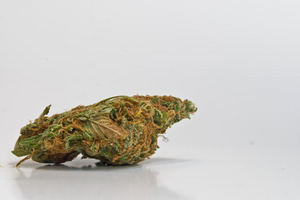When U.S. Attorney General Eric Holder stood before the world and promised that his office was committed to curbing “draconian” minimum mandatory sentences for lower-tier drug offenders, it sounded awfully familiar to many Floridians.

For years, a bi-partisan coalition of activists in the state have been trying without success to overhaul Florida’s minimum mandatory drug laws. Our Fort Lauderdale drug crime defense attorneys know that recent analysis shows that a mandatory, three-year drug sentence in the state costs taxpayers nearly $58,500, while a combination of treatment and work release over that same time frame costs less than $20,000.
Crime in Florida is the lowest it’s been in more than four decades. Yet, our prison population continues to balloon with large numbers of first-time offenders, mostly arrested after undercover busts for trafficking in small amounts of drugs.
According to the Florida Department of Corrections, we are paying some $300 million annually to incarcerate drug offenders.
Holder’s plan to change course on federal drug offenses is an excellent start. Ever since the nation first declared a War on Drugs back in the 1980s, the policies have served primarily to decimate communities and significantly limit educational and professional opportunities for large swaths of non-violent minority offenders. Holder said the shift will start with an instruction to federal prosecutors to omit the amount of drugs involved in a given arrest. It is the amount of the drugs (and the type) that has the potential to trigger mandatory minimum sentencing under the law.
So he’s not actually suggesting a change in the law, but rather a way around it. Again, this is a good start, but it’s unlikely to have a direct or immediate impact on the many thousands of drug offenders being prosecuted by the state.
While there are 2 million prisoners in our nation’s jails and prisons, only about 10 percent of those are in the federal system. Of those, about 90,000 are drug offenders and only a small portion of those are considered lower-level offenders. Most of those prosecuted at the federal level are for higher-level trafficking offenses. Most first-time, low-level drug offenders are prosecuted by the state. That means that any significant changes for Florida are going to have to come from state legislators.
Over the last decade, the rapid rise of prescription drug abuse has led to a surge of drug-related arrests in Florida. For example, convictions for drug trafficking increased four-fold in the six years between 2006 and 2012. In most cases, if there was a conviction, the judge had very little discretion on jail time. Even those with no prior criminal history (which comprised three-fourths of these offenders) were sentenced to an automatic three years, per the minimum mandatory sentencing guidelines.
Part of what Holder suggested was that federal officials leave the majority of lower-level drug cases to state prosecutors. Offenders aren’t likely to fare any better that way, at least in Florida. In fact, federal prosecutors hoping for a tougher sentence for a certain offender might be encouraged to forward a case to the state.
However, it is possible that an influx of additional drug offender cases could put some pressure on the state system to adjust. It’s also possible that state prosecutors could follow Holder’s lead in a more relaxed approach, but we don’t anticipate that on any wide scale as they have not been given a direct order to do so.
The bottom line is that those who have been arrested for drug offenses in Florida shouldn’t expect leniency anytime soon. Your best protection is an experienced defense lawyer.
If you’ve been arrested, call Fort Lauderdale Criminal Defense Attorney Richard Ansara at (954) 761-4011. The Ansara Law Firm serves Broward, Dade and Palm Beach counties.
Additional Resources:
Push for leniency in drug sentencing has been a hard sell in Florida, Aug. 18, 2013, By Mary Ellen Klas, Miami Herald
More Blog Entries:
Florida Marijuana Arrests Racially Disparate, Aug. 10, 2013, Fort Lauderdale Drug Crime Defense Lawyer Blog
 Fort Lauderdale Criminal Attorney Blog
Fort Lauderdale Criminal Attorney Blog


